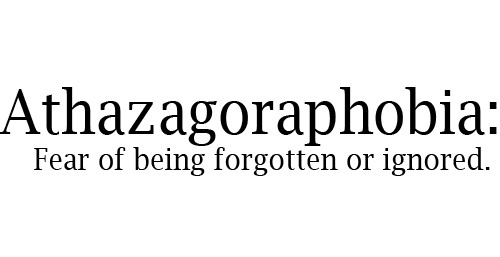Indeed, I think this phenomenon is predicated by social networking and the like, but I think our class discussion of it fell short of addressing a far more important component: the cause. Why now, in an age when we already have more ability to share our personal lives with strangers at every waking moment of every day than ever before, are we urged, as if by something subconscious, to share more and more? It is as though we fear that if every moment is not carefully and mechanically computed, stored, and transmitted out, it is lost. If we do not share our inner self with others--if something or someone outside of ourselves does not see our true heart and soul--we will be unknown.
This modern characteristic--the fear of being unknown and the reactionary insistence on making others know us--I would suggest might come from the dire straits we are in spiritually, as a culture.
Every human heart longs to be known completely, which is part of the reason why God is so irresistibly appealing to those who have discovered Him as the great Knower. He is also the only one that can ever truly know us, for "Before I formed you in the womb I knew you, before you were born I set you apart..." (Jeremiah 1:5). Yet today, with the loss of Faith in God, the abandonment of the search for Him, and the rampant selfishness and immorality that degrades the human person, there seems to be a widespread feeling of being lost in a vacuum, alone and unknown despite the frantic regurgitation of feelings and facts to any captive audience that technology allows us to access. More accurately, perhaps: it's like screaming into a vaccuum--the louder we yell (the more 'connected' we are), we still can't be heard (and we still aren't connected with anyone in any real way).
During our class discussion, someone brought up those people (you know them or you are one) who go to events or catalog huge personal moments by filming or taking pictures. They seem to get so lost in the mechanical process of recording that they miss the moment. It becomes all-important to artificially capture an experience, so that it can be put aside and processed later; yet we never seem to get to it, and so our lives become a pathetic train of moments we weren't present for and conversations we didn't have because we were too busy self-branding the version of it we want to post to Facebook to listen to the words of the person on the other side of the table.
In a secular class, and one with a very left-leaning bent, it is easy to become similarly bogged down in discussing times we've seen others act this way, or times we've caught ourselves acting the same. But this ignores the root of the problem. What kind of self-loathing, or emptiness, or loss of purpose, could cause us to lie so pathetically to ourselves? Because it is indeed a lie; although we clamor that our experiences--all of them--are of paramount importance to us and to everyone else, even as we notate and store them meticulously, we push them aside and refuse to face them, much less live them.
It's quite simple: we live in a hedonistic, navel-gazing, morally ambiguous culture, which has exiled the only One with the capacity to know and love each of us personally. As a result, we search frantically for love, affirmation, and intimacy with anyone and everyone, but because everyone else is searching with equal urgency for their own slice of acknowledgement and love, nobody has time, or even the peripheral vision, to see or hear me, or you, except perhaps selfishly, as a discard-able means to their own end.
"Jesus’ sacrifice on the cross is nothing else than the culmination of the way he lived his entire life. Moved by his example, we want to enter fully into the fabric of society, sharing the lives of all, listening to their concerns, helping them materially and spiritually in their needs, rejoicing with those who rejoice, weeping with those who weep; arm in arm with others, we are committed to building a new world. But we do so not from a sense of obligation, not as a burdensome duty, but as the result of a personal decision which brings us joy and gives meaning to our lives." (EG 269)This doesn't mean 'liking' a friend's status on Facebook. It means pulling your head up from beneath the overwhelming tide of commodified personal details that form the ocean of social networking, and listening to one person, face to face, say one real thing, where it matters--outside of the vaccuum. By turning back to our neighbor, we will gradually find ourselves turning back to Christ, and in so doing, will discover (or rediscover) that if we are finding the face of Christ in others, and talking to, caring for, and seeing Him there in them--then He is looking back at us. His eyes, and His eyes alone, will truly see us and know us.
It means another thing, too, though. It means disconnecting from the frantic, stressful environment in which we find ourselves searching for something that we can't find in the artificially constructed reality of the desperately lonely. It means that we must "Be still, and know that I am God". It is not coincidence that the words of Consecration, the act by which Christ gave Himself to us tangibly, until the end of time--the most real companionship and act of sacrificial love we could imagine--includes the word 'remembrance'.
We are never forgotten--it is we that forget. So the next time your culturally-embedded loneliness is giving you the twitch to tweet mindlessly about your breakfast--try to make a practice of stopping and remembering that God knows and loves you.




No comments:
Post a Comment